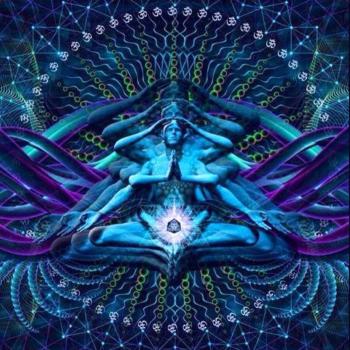 “Ugh, Maria cut in line again? That woman is a walking karmic disaster!” Sarah grumbled, watching Maria snatch the last pain au chocolat from the bakery display. “She’ll get hers someday, you just wait.”
“Ugh, Maria cut in line again? That woman is a walking karmic disaster!” Sarah grumbled, watching Maria snatch the last pain au chocolat from the bakery display. “She’ll get hers someday, you just wait.”
This common refrain – “what goes around comes around” – echoes the concept of karma, a universal law in Eastern religions. But what exactly is karma, and how does it influence our lives? Let’s delve deeper…
One of the mysteries puzzling human minds since ages is what happens after death? Equally perplexing is why some individuals experience abundant happiness and prosperity, while others endure immense suffering and hardship. The answers to these questions lie within the ancient philosophy of karma, which provides a profound understanding of life, death, and the human experience.
Karma isn’t merely a cosmic tool for delivering retribution for one’s wrongdoings, nor is it simply luck or destiny. In Sanskrit, “karma” translates to “action,” or “work,” and it fundamentally refers to the spiritual principle of cause and effect. Good intentions and actions contribute to positive karma, while negative ones result in negative karma. Importantly, karma isn’t inherently negative; it’s more about the law of consequences than a system of rewards and punishments.
The notion is linked to the idea of samsara, the cycle of birth, death and rebirth that all souls undergo in Hindu, Buddhist and Jain philosophies. It represents the continuous cycle of life where the soul transmigrates after death, bringing Karmic impulses from the life just finished into the new one. Conversely, it’s important to note that karma you are experiencing today may be a product of not just your actions in this lifetime but based on what happened in the lives you had in the past.
Understanding Karma
Try striking the top of a table with your bare knuckles? It would hurt, wouldn’t it? The harder you strike, the more the pain. All actions have equal and opposite reactions, Newton’s third law of motion. Unpleasant situations are the consequence of lingering karma, which can always be reversed and resolved.
- Sanchita Karma: The total accumulated karma from all past lives.
- Prarabdha Karma: The portion of Sanchita Karma that is currently influencing our present life.
- Agami Karma: The karma that we are creating through our current actions, which will influence our future lives.
We are born with a mix of good and bad karma, which shapes the circumstances of our current life. This explains why some people are born into prosperity and happiness, while others face suffering and challenges. The soul reaps the effects of its own actions. If you plant mango, you can pluck mango. If we cause others to suffer, then the experience of suffering will come to us. If we love and give, we will be loved and given to. You can only reap the fruit, bitter or sweet, of your own actions. Thus does each soul create its own destiny through thought, feeling and action. Karma is a natural law of the mind, just as gravity is a law of matter.
Karma: No expiration date
Karma is the baggage your soul carries throughout its journey from life to life. Unlike luggage at the airport, this particular baggage never gets lost, which means you’re stuck with it until you open it up and sort through its ancient contents. Without even knowing it, you may be experiencing karma that originated several lifetimes ago. When you dig through your karmic suitcase, then finally, you can confront your outstanding karma and lighten your energetic load.
Karma: Nothing is coincidence
We meet people by chance, not by coincidence. Karma places each and everyone into our life for a reason as planned by karmic relationships. Some people came into our life to teach us a lesson and we realised it later on. Therefore, it is important to acknowledge the role of each person why we met them? What they want to teach us? The sooner you acknowledge the truth, the sooner it is easy for you to settle it.
Karma: The Dance of Roles
One of the most fascinating aspects of karma is its tendency to cause us to reincarnate in reversed roles. Your best friend in your previous life must be your sibling in this lifetime. Souls switch genders and positions, depending on the karmic need for healing and repair. Thus, the people you interact with now may have played very different roles in your previous lives, reflecting the dynamic nature of karmic relationships.
Moksha: Achieving Freedom from Samsara
The question arises how you escape from karma or samsara? While karma from past lives influences our current situation, it is not an unchangeable destiny. We can transform our karma through positive actions, thoughts, and intentions in this life. Engaging in selfless service and acts of kindness generates good karma, while mindfulness and positive thinking reduce bad karma.
By working towards achieving enlightenment, or “Moksha.” Once you get there through good karmic deeds and spiritual practices, your desires and sufferings will go away and you will find peace and happiness. Of course, your physical body will die and you will no longer be reborn, but on the plus side, you will be awake to the true nature of reality and if you’re Hindu, you’d reunite with Brahman, the universal God or soul.
“The wise, engaged in devotional service, take refuge in the Lord, and free themselves from the cycle of birth and death by renouncing the fruits of their actions in the material world. In this way, they attain that state beyond all suffering.” ~ Bhagavad Gita 2.51

















